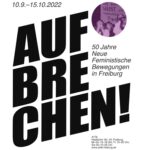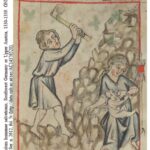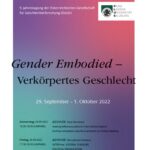 The International Federation for Research in Women’s History – IFRWH | Federation Internationale pour des Femmes – FIRHF (Web)
The International Federation for Research in Women’s History – IFRWH | Federation Internationale pour des Femmes – FIRHF (Web)
The IFRWH Newsletter is published semi-annually. It provides an overview of new international publications on women’s and gender history: It presents research projects, announces conferences and places calls for papers. The newsletter thus gives a valuable overview of the relevant research being done worldwide.
The Newsletter Issue 71 (Summer 2022) is online now. It has a volume of 92 pages. The newsletter always publishes a lot of information from Austria. The coordinator of the contributions from Austria is Birgitta Bader-Zaar (PDF).
A list of the all previous newsletters can be found on the website (Link).
The International Federation for Research in Women’s History
The IFRWH was founded in April 1987. The first meeting of national committee representatives was held in 1989, in Bellagio, Italy, with the assistance of the Rockefeller Foundation.
The Aim of IFRWH is to encourage and coordinate research in all aspects of women’s history at the international level, by promoting exchange of information and publication and by arranging and assisting in arranging large-scale international conferences as well as more restricted and specialized meetings. National Committees serve as liaison between communities of researchers and the Federation. Find more information on the website (Link).
Selected papers presented at the Federation’s confrences have been published in several volumes (Link).

 Feministisches Archiv Freiburg
Feministisches Archiv Freiburg  Eva-Maria Cersovsky (Univ. of Cologne) and Julia Exarchos (RWTH Aachen)
Eva-Maria Cersovsky (Univ. of Cologne) and Julia Exarchos (RWTH Aachen) 9. Jahrestagung der Österreichischen Gesellschaft für Geschlechterforschung
9. Jahrestagung der Österreichischen Gesellschaft für Geschlechterforschung  Medienwerkstatt Wien und Erstes österreichisches Museum für Alltagsgeschichte
Medienwerkstatt Wien und Erstes österreichisches Museum für Alltagsgeschichte  Annelie Ramsbrock (Univ. of Greifswald), Ronny Grundig, Laura Haßler, Elisabeth Kimmerle, Annalisa Martin, and Juliane Röleke (Leibniz Centre for Contemporary History Potsdam)
Annelie Ramsbrock (Univ. of Greifswald), Ronny Grundig, Laura Haßler, Elisabeth Kimmerle, Annalisa Martin, and Juliane Röleke (Leibniz Centre for Contemporary History Potsdam)  Julia Anna Schranz and Claudia Martínez Hernández (Univ. of Vienna)
Julia Anna Schranz and Claudia Martínez Hernández (Univ. of Vienna)  Ellinor Forster, Institut für Geschichtswissenschaften und Europäische Ethnologie, Univ. Innsbruck
Ellinor Forster, Institut für Geschichtswissenschaften und Europäische Ethnologie, Univ. Innsbruck